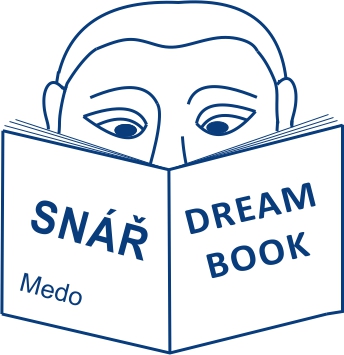The Dream Book of Self-Knowledge
- the dreamer defends himself in a dream from everything that is not compatible with his spiritual level and moral views, which is why he resists the higher in the form of unknown objects, plants and beings just like an animal defends itself in fear when a person wants to help it when it is in pain and suffering (see archetype of UFO – Initiation Ceremonies); conversely, the dreamer resists falling into bestial instincts in allegories of clashes with animals, personified instincts or with people representing a lower moral plane.
- the dreamer is defended from what he wants to do in waking consciousness to gratify his own ego, but which is not compatible with his true inner morality; objects preventing progress or escape relate to traits and dependencies that the dreamer should overcome in waking consciousness.
- from collisions and accidents: the dreamer thus protects his own life and only dream consequences of possible accidents show to what extent the effort to prevent these accidents was effective; the dreamer protects the achievements of his hitherto progress; e.g. he protects his house (body), bridge (spiritual and life journey), his own dream character (feelings) and the like.
- from dark characters, an evil brother or sister, demons, underworld creatures, invisible beings, monsters, personified evil or personified traits (e.g. vanity, pride), the devil or Mara*3: All this, just like seeing a fight in the name of Good, fights of Good forces against Evil forces or fights between the Gods, belongs to the Shadow archetype; the shadow will always try to pull a person back into the bondage of instincts and dependencies (see Shadow archetype).
- coming to the defense of others: the defense of the dreamer's traits represented by dream personifications; every hero must defend his anima (heroine protects her animus), first on an instinctual level, later on the emotional and ultimately spiritual level.
- of a castle, fortification, buildings: symbolizes worries about influences of the outside world, though such worries lead to isolation that bring an unpleasant and often depressive feeling that we have postponed something and did not finish something.
- of one's country: the defense of the mind against disruptive external influences and also the hardening of national sentiments.
- creating a defense system: once the dreamer ascends through his experiences to the emotional level, instinctual personifications begin to attack with instinctual symbols the position in the dreamer's consciousness that was up until recently fully under their control; such dreams are frequent at the start of a spiritual path.
- surrendering all defense mechanisms of the personality (self-preservation instinct): an important act on the spiritual path in which the dreamer, from the position of an inner witness in complete surrender to higher principles (e.g. to God) releases his fear, panic and terror to experience unity, peace and tranquility (see Attentiveness archetype).
- if the dreamer is unable to protect himself from the unknown or stronger and gives himself up to the God of providence, then he has found the truth of Jesus Christ, who turns the other cheek after a blow; a person is thus assimilating the lower instincts, is assimilated through higher spiritual aspects in the form of aliens and UFOs and accepts blows of fate as karma*26, whose bad seed he had once sown and is now harvesting its bitter fruits.
- the highest and ultimate defense is indifference which enables us to recognize previously unseen things and relations; indifference can reveal in any gesture, in any movement, sexuality and lust, hate, envy and stupidity, enthusiasm and disappointment, aggression, resignation, desire for love and tenderness.
- what we defend or what is defended from us is more important than the act of defending.
- in court: see Court.

